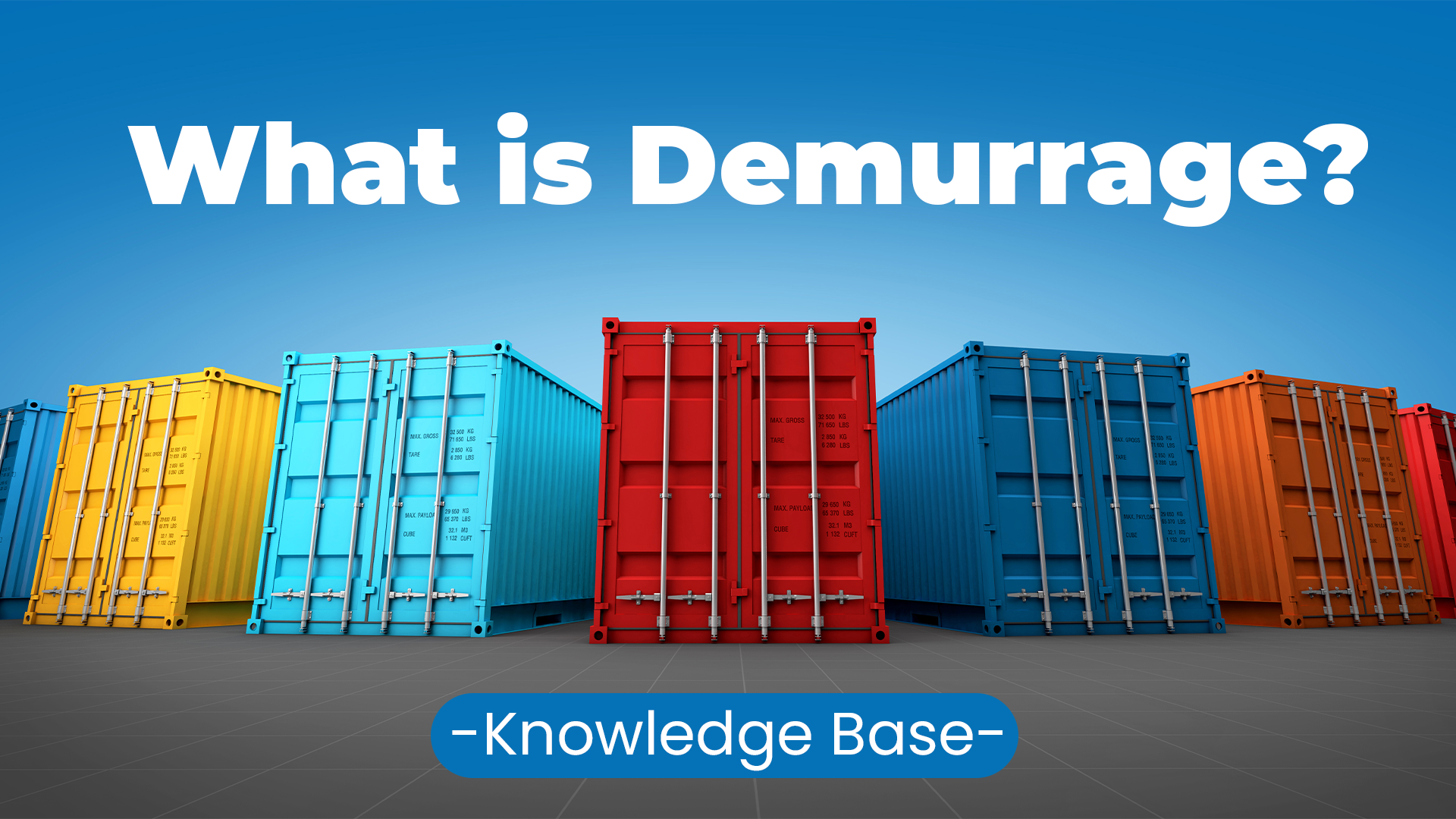Table of Contents

Demurrage is a type of penalty to be paid if a container stays at a terminal longer than its free time. This fee is imposed by the shipping line for the extra use of the terminal space, container yard, and rail yard. Demurrage is part of the contract between the carriers and the clients (shipper and consignee).
This contract contains the details about free time and the fee charged per day per container after the free time has elapsed. Shipping lines mostly allow 4 days (Working Days) of free time at the terminal of the United States. However, in the case of special containers (which may contain livestock, food items, etc.), the allowed free time is set to a minimum.
What are the Main Causes of Demurrage?
There are a few main causes due to which a customer faces a demurrage penalty fee:
- The Conflict Between Exporter and Importer
- Delay in Custom Clearance
- Unclear Arrival Time
- Port Congestion
- Incorrect or Incomplete Documentation
- Late Collection of Documentation
- Lost Documentation
- Late Custom Clearance or Cargo Inspection
- Receiver out of Reach
- Later Arrival of Cargo at Port for Export
When is Demurrage Applicable?
Demurrage is applicable on the shipments which are staying and consuming the space of the terminal even after the agreed free time has elapsed. Demurrage is applicable in both import and export.
Import Demurrage is when a shipment is unloaded at the port from the vessel and is taken to the container station while the customer gets clearance from customs and collects the shipment. The demurrage fee is implemented if the shipment stays at the terminal for longer than the allotted free time.
Export demurrage is when a shipment arrives at the port to be loaded on the vessel. However, the shipment can’t reach or be loaded onto the vessel within the free time due to unforeseen circumstances. In such cases, the cargo is left at the terminal storage (container yard or the rail yard) to onboard the next vessel from the shipping line. This extra time is penalized with demurrage charges on the storage of the container.
Who Charges Demurrage?
The terminal charges the demurrage, and the client has to pay this fee directly to the terminal.
Why Does Demurrage Exist?
Demurrage is a necessary penalty to avoid cargo congestion at the port. It keeps a healthy flow of the “Ins and Outs” of containers so that the port can work more efficiently without any shortage of storage facilities.
Does Demurrage Vary?
Yes, the Demurrage fee can vary depending on the type of container, the amount of time elapsed after the allotted free time, and the carrier you are using. Other than these, your contract with the carrier can also create a variance in the Demurrage fee.
How to Calculate Demurrage Fee?
First of all, to calculate the Demurrage fee, you would require the Demurrage Charge fee data of the carrier that you are using. In this data, you would need the penalty rate per container of demurrage according to your container’s size and the day range after the free allotted time has passed. Once you have this data, use the following formula to calculate your Demurrage fee:
Demurrage = (Number of Containers) x (Number of Days After Free time) x (Penalty Rate Per Container)
That was all about Demurrage! We hope that now you understand the meaning and the purpose of Demurrage.